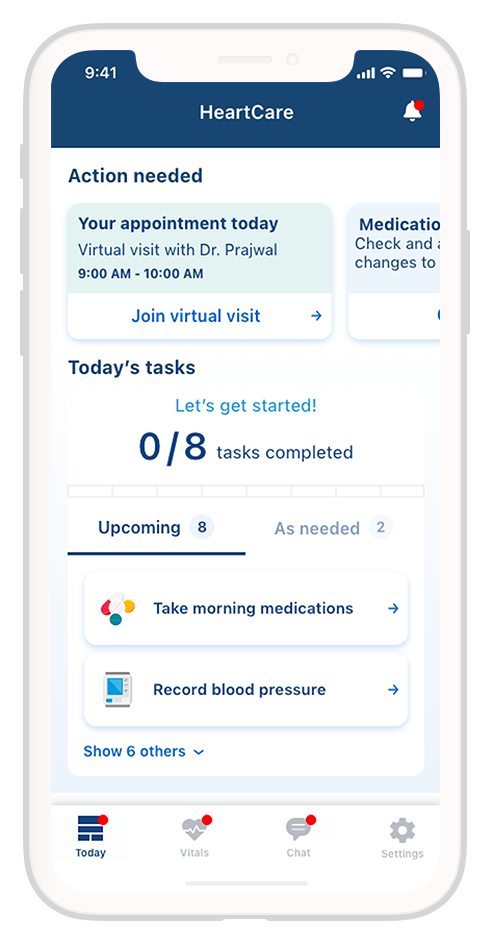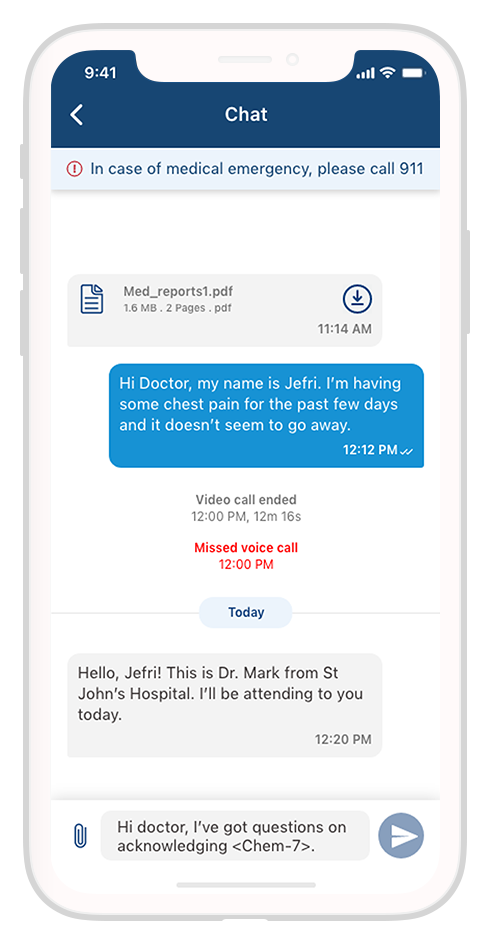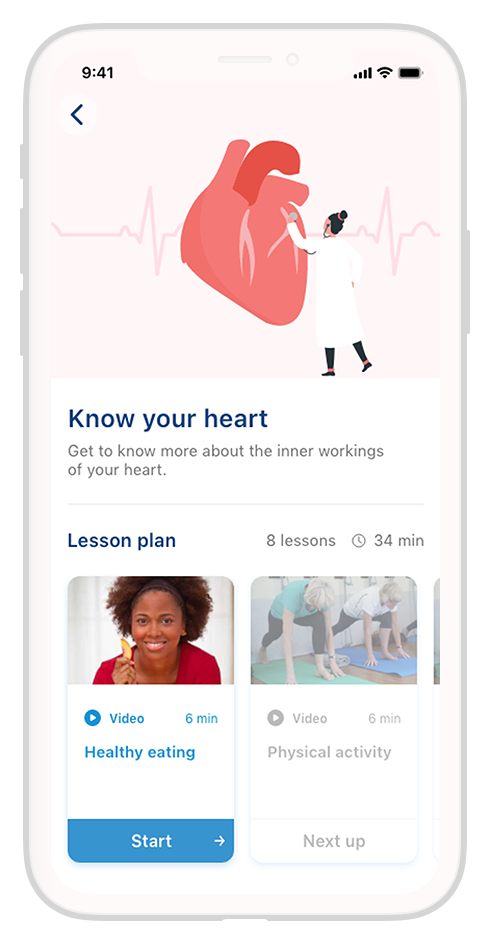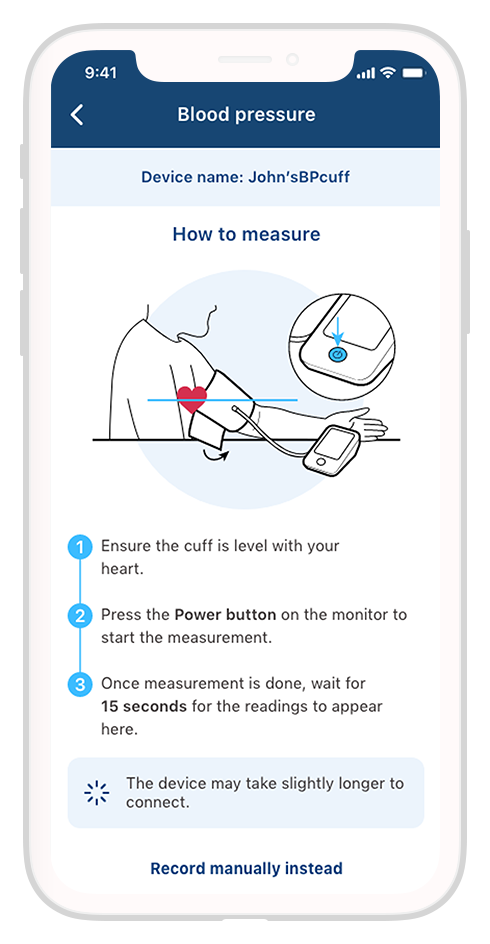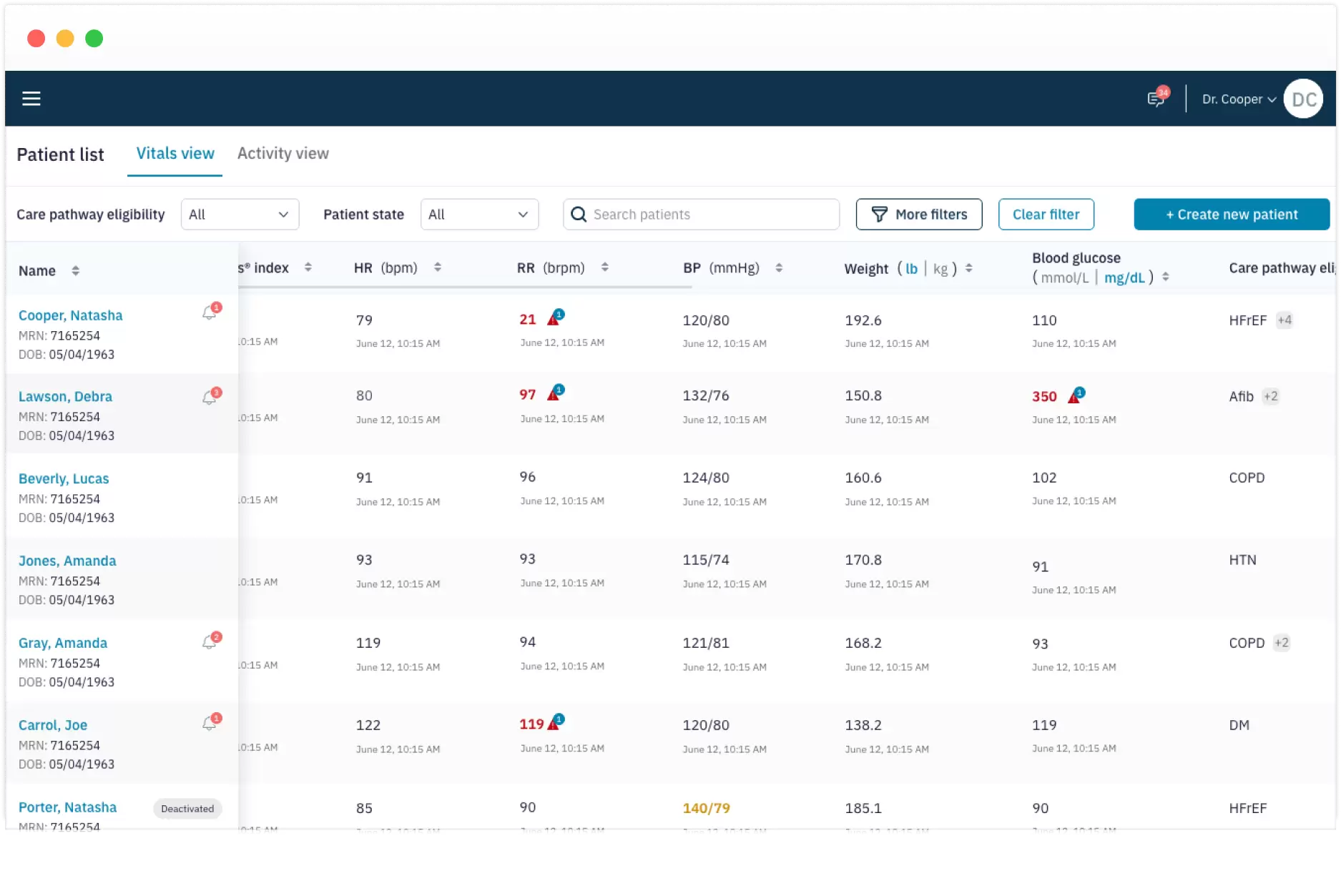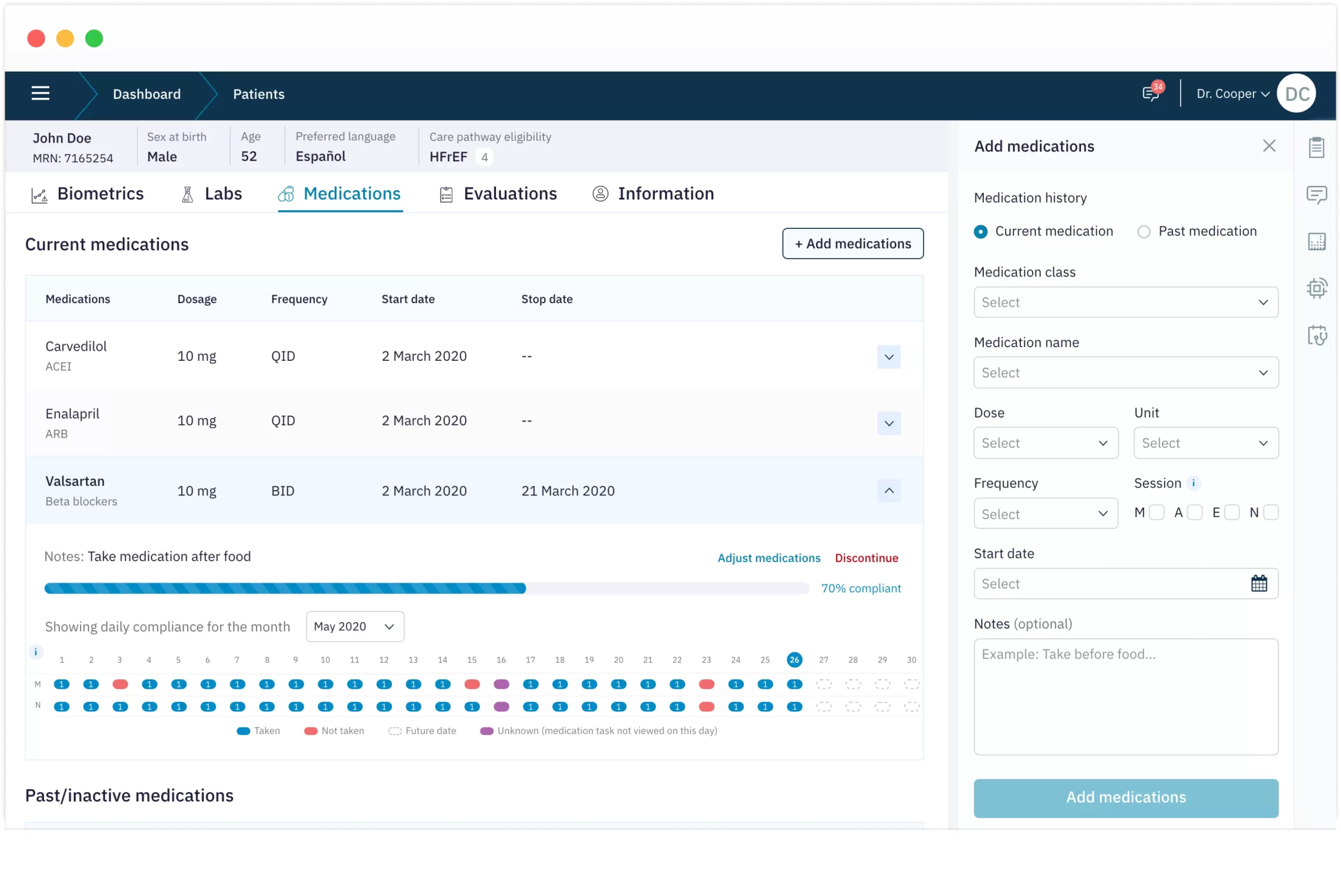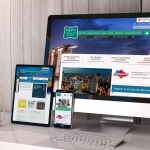Caring for patients with Chronic illness
Enabling healthcare providers to swiftly suggest medical treatments for patients suffering from heart failure.
Background
Heart failure is a chronic condition affecting millions of individuals worldwide, with a significant impact on their quality of life and healthcare systems. To address the complex needs of patients with heart failure and improve clinical management, our team was tasked with designing two interconnected applications: a mobile application for patients called HeartCare, and a web application for clinicians called HeartMonitor.
Problem statement
Patients with heart failure often struggle to manage their condition effectively, leading to frequent hospitalizations and poor health outcomes. Clinicians face challenges in monitoring and managing heart failure patients remotely, resulting in suboptimal care delivery and resource utilization.
Objectives
- Empower patients with heart failure to better manage their condition through a user-friendly mobile application.
- Provide clinicians with a comprehensive web application to remotely monitor and manage heart failure patients, improving care coordination and outcomes.
Process and features
Research and Analysis
- Conducted in-depth research to understand the needs, challenges, and preferences of patients with heart failure and healthcare providers.
- Reviewed existing literature, conducted interviews with patients and clinicians, and analyzed competitor applications.
User Persona Development
- Developed detailed user personas representing typical patients with heart failure and clinicians involved in their care, highlighting their goals, pain points, and preferences.
Feature Prioritization
- Identified key features and functionalities based on user research, focusing on addressing the specific needs of patients and clinicians.
- Prioritised features based on their impact on patient outcomes, usability, and technical feasibility.
Wireframing and Prototyping
- Created wireframes and prototypes for both the mobile and web applications, focusing on intuitive navigation, clear information hierarchy, and user-friendly interfaces.
- Conducted iterative testing and refinement to ensure usability and accessibility across different devices and platforms.
Visual Design
- Developed a cohesive visual identity for both applications, incorporating calming colors, clear typography, and intuitive iconography to create a sense of trust and reassurance.
- Designed engaging and informative visuals, such as animated tutorials and interactive dashboards, to enhance user engagement and comprehension.
Development and Testing
- Collaborated closely with developers to implement the design vision, ensuring seamless integration of features and optimal performance.
- Conducted rigorous testing across various devices and operating systems to identify and address any usability issues or technical glitches.
Launch and Deployment
- Rolled out the HeartCare mobile application to patients via app stores, accompanied by comprehensive onboarding materials and support resources.
- Deployed the HeartMonitor web application to healthcare facilities, providing training and technical assistance to clinicians for seamless integration into their workflows.
Key Features
HeartCare (Mobile Application for Patients):
- Personalised symptom tracking and self-assessment tools to monitor heart failure symptoms and medication adherence.
- Educational resources and lifestyle management tips tailored to patients’ specific needs and preferences.
- Integration with wearable devices and sensors for real-time monitoring of vital signs and activity levels.
- Medication reminders and alerts to promote medication adherence and timely follow-up with healthcare providers.
- Secure communication channels for messaging and video consultations with clinicians, facilitating remote care delivery and support.
HeartMonitor (Web Application for Clinicians):
- Comprehensive patient dashboard with real-time updates on patients’ vital signs, symptoms, and medication adherence.
- Decision support tools and clinical guidelines for risk stratification and personalized care planning.
- Secure messaging and telehealth features for virtual consultations and care coordination among multidisciplinary healthcare teams.
- Analytics and reporting capabilities to track patient outcomes, identify trends, and optimize care delivery processes.
- Integration with electronic health record (EHR) systems for seamless data exchange and interoperability with existing clinical workflows.
Outcomes
- Improved patient engagement and self-management of heart failure symptoms, leading to reduced hospitalisations and improved quality of life.
- Enhanced care coordination and communication among healthcare providers, resulting in more proactive and personalised care delivery.
- Empowered clinicians with actionable insights and decision support tools to optimise treatment plans and improve patient outcomes.
- Positive feedback from patients and clinicians on the usability, effectiveness, and value of the HeartCare and HeartMonitor applications in managing heart failure.
Conclusion
The development of HeartCare and HeartMonitor represents a significant step forward in addressing the complex challenges associated with heart failure management. By leveraging technology and human-centered design principles, we have created a comprehensive healthcare solution that empowers patients, supports clinicians, and improves outcomes for individuals living with heart failure. Moving forward, ongoing user feedback and iterative refinement will be essential to ensure the continued success and impact of these applications in clinical practice.
